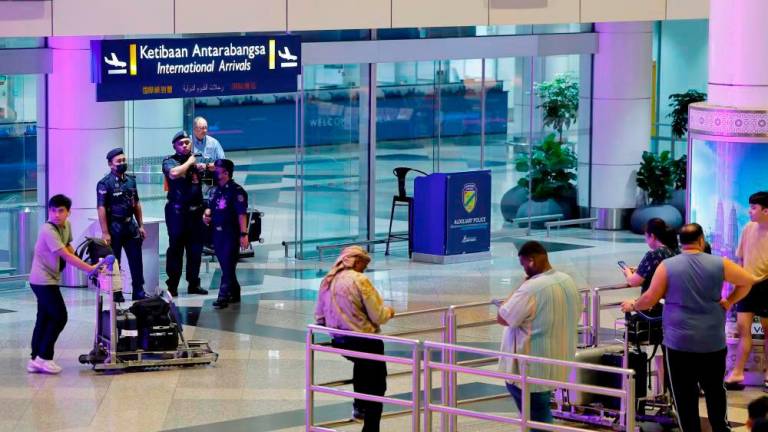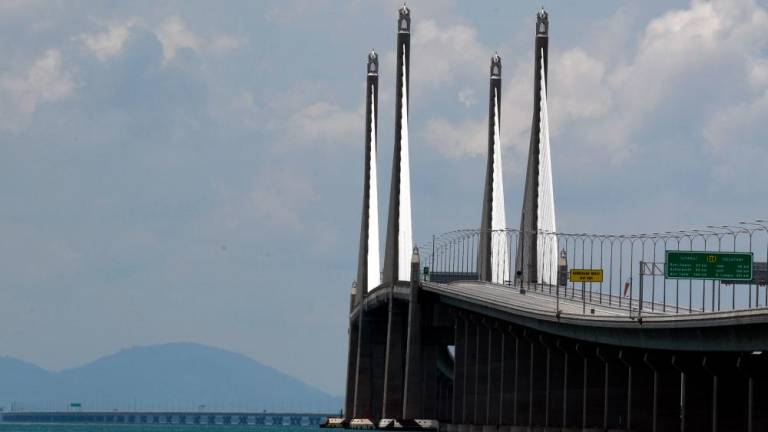KUALA LUMPUR: Affin Hwang Capital foresees the escalating US-China trade war to possibly lead to a global recession in 2020, posing downside risks to Malaysia.
Its head of research and chief economist Alan Tan (pix) said looking at the first round of tariffs on Chinese goods to the US, it is seeing indicators like the global Purchasing Managers’ Index and global semiconductor sales, all contracting to a level near the global financial crisis.
“The first round of tariff talks has impacted global growth momentum going into 2020. We don’t see the trade war resolving any time soon and there’s a strong possibility that Trump will impose tariffs on the remaining US$300 billion (RM1.23 trillion) of Chinese goods to the US,” he told a media briefing on the 2H19 market outlook today.
He said global gross domestic product (GDP) growth may be dragged down from 3.6% (IMF’s projection) to 3.1% in 2020, which is close to a global recession’s. Historically, IMF’s definition of global growth below 3% signifies a global recession and going into 2020, Tan opined that global growth will remain weak in the region of 3-3.1%.
“Assuming a trade compromise in the end of Q3 and Q4 and Huawei being lifted from the ‘entity list’, therefore the assumption is that global growth will remain at 3.6% and we will avoid a global recession in 2020. But looking at the current scenario between the two countries, it doesn’t indicate to us that we will see a trade compromise anytime soon,” stressed Tan, adding that 2020 will be a challenging year for the global economy.
In light of a possible global recession, he said there is a need for Malaysia’s domestic demand to remain healthy and for the government to accelerate infrastructure spending and provide higher allocation for the development expenditure which are important to cushion the slowdown in exports.
He projected Malaysia’s GDP to grow at 4.5% in 2019 and 2020, and to remain resilient with strong private consumption. However, he concurred that it will be challenging for Malaysia to achieve its fiscal deficit target of 3% in 2020.
“Budget 2020 may see more business-friendly and consumer-friendly policies that support Malaysia’s domestic demand at the expense of our fiscal deficit position. But as long as the fiscal deficit remains in the range of 3.2-3.4%, we think that sovereign rating agencies will continue to maintain Malaysia’s stable outlook and this does not risk a downgrade because 2020 will be challenging on the external front,” explained Tan.
He expects the ringgit to be supported by the interest rate differential and to hover around RM4.10 against the US dollar by end-2019.
“Going into 2H next year, we’ll continue to see the ringgit hover at the RM3.90-4.00 level supported by healthy current account surplus and healthy economy that will cushion the slowdown in exports due to the uncertainties surrounding the trade war.
“If Malaysia’s economic fundamentals remain intact from ample reserve, current account surplus, and decent economic growth, capital flows will still come to Malaysia because of the widening interest differential due to the cut in US fed funds rate,” said Tan.
He said the ringgit may be vulnerable to downside risks if Malaysia’s domestic demand is not strong enough to withstand the slowdown in exports and assuming the country’s GDP growth slows.
“It all boils down to Malaysia’s domestic demand to hold up. The government has to take necessary steps to provide support to Malaysia’s domestic demand in case of a sharp economic downturn.
“Historically, the government tends to spend more towards Q3, Q4 and therefore we think that in 2H19, the favourable employ-ment conditions and steady consumer spending will continue to support the domestic economy.”
He recommended investors to adopt a defensive stance, targeting the FBM KLCI to hit 1,679 points during year-end.














